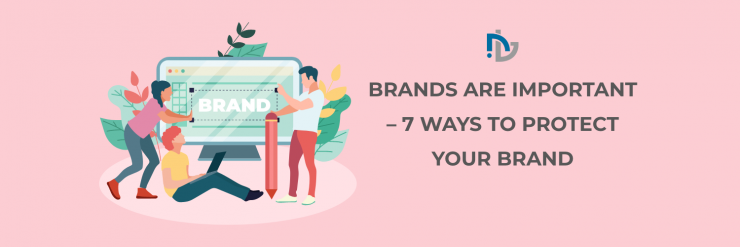Reputations are built over a lifetime but can be destroyed in seconds. The brand is the representation of the reputation of a company and more importantly, an individual. Brands are selling points for entering into business and personal relationships.
The name of a business, its brand and innovations provide commercial value which can be vulnerable to attack from copycats seeking to extract that value for their own benefit.
The following are 7 ways in which your business can protect its name, brand and ideas:
1. Company Name Registration
Registering your business as a corporate entity on the local Register of Companies serves to prevent an identical name being registered by another party and to discourage others from registering a similar corporate name.
Company name registration confers the exclusive right to the corporate name with the designation such as Incorporated or Inc., Corporation or Corp., Company or Co., Limited or Ltd.
2. Domain Name Registration
Registering a domain name puts your business’ name onto the worldwide web, thus making it accessible to a global market. It also makes it easier for customers to find information about your business such as the services you provide, contact details, and place orders, etc.
3. Copyright
Copyright grants the creator of an original work exclusive rights to its use and distribution. It applies to all types of original written and recorded materials from software and the internet, to drawings, photography, films and music.
Companies, which hold copyrights over original works, may profit from royalty payments through licensing agreements. Copyrighted works should be marked with the symbol “©”, the name, or the owner and the year in which it was created.
4. Trademarks
Trademarks are particularly important for protecting brand identity and distinguishing your business in the marketplace. Businesses may register a trademark to protect and secure their business names, brands and logos.
5. Patents
A patent is a form of “industrial property”, which can be assigned, transferred, licensed or used by the owner and help to protect the ideas and innovations of business from copycats.
A patent is granted for a specified time and confers upon on the holder the rights to make, use, license or sell the innovation.
6. Design
New and distinct visual designs of products and company logos should be protected as they may provide your business with a distinctive competitive advantage over your competitors.
Examples of protected designs include the design of mobile phones, wristwatches and drink bottles.
7. Protecting Trade Secrets
Trade Secrets or “Confidential Information” is information which a business can use to maintain an economic advantage over competitors or customers. This type of information holds a commercial value for your business and should be protected accordingly. Although there is no formal registration requirement for trade secrets, businesses should take reasonable steps to ensure that their trade secrets remain in the right hands.
Protection – Proactive Approach
Trademark infringement, cybersquatting and corporate identity theft are all too common in today’s global marketplace. International laws vary across the world and businesses need to be aware of the legislation that applies to the markets in which they operate to ensure that their brand and product rights are protected in those markets.
A company’s brand and innovations can be their most valuable assets and they are something that every business should be proactive in protecting.








